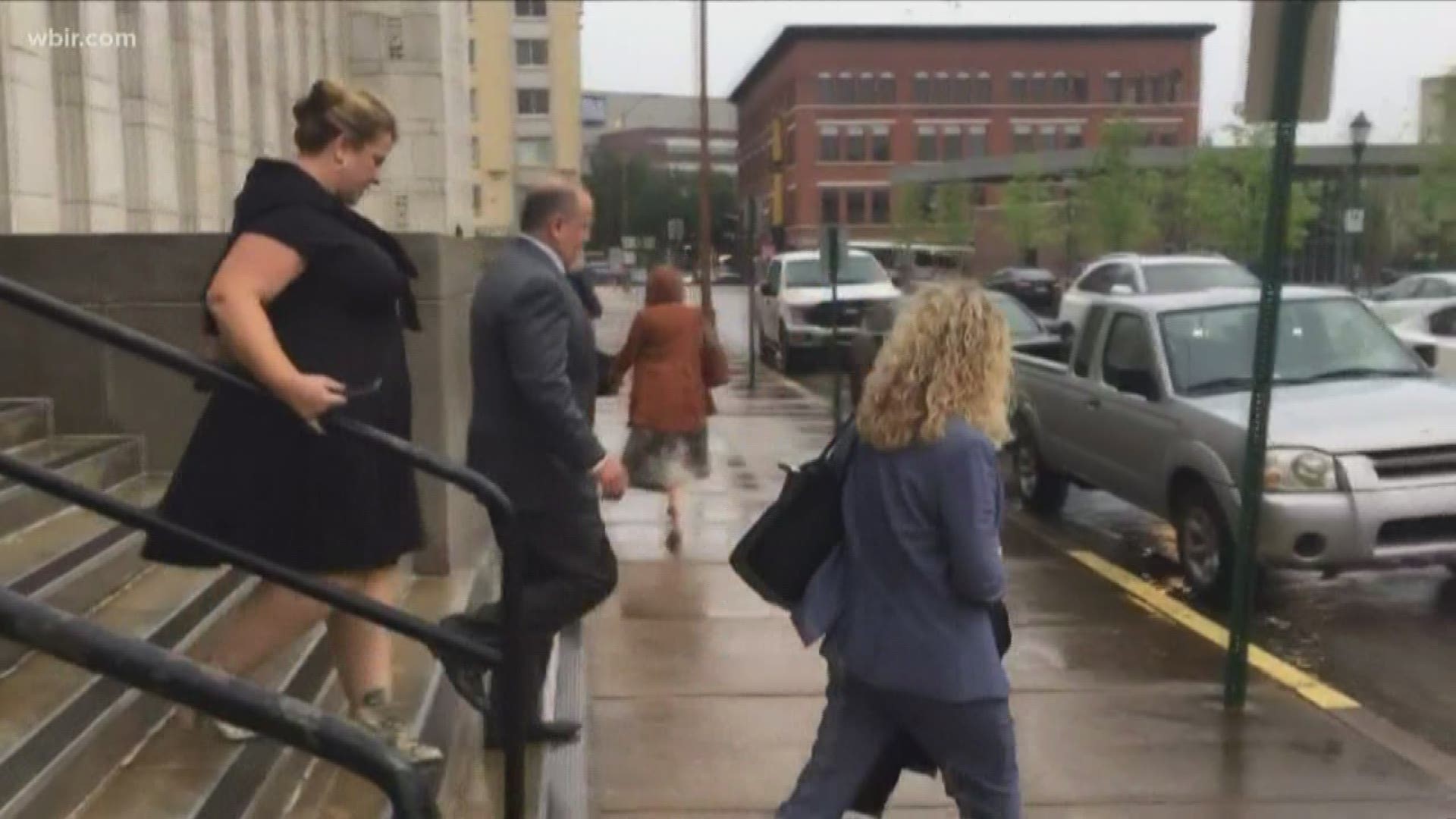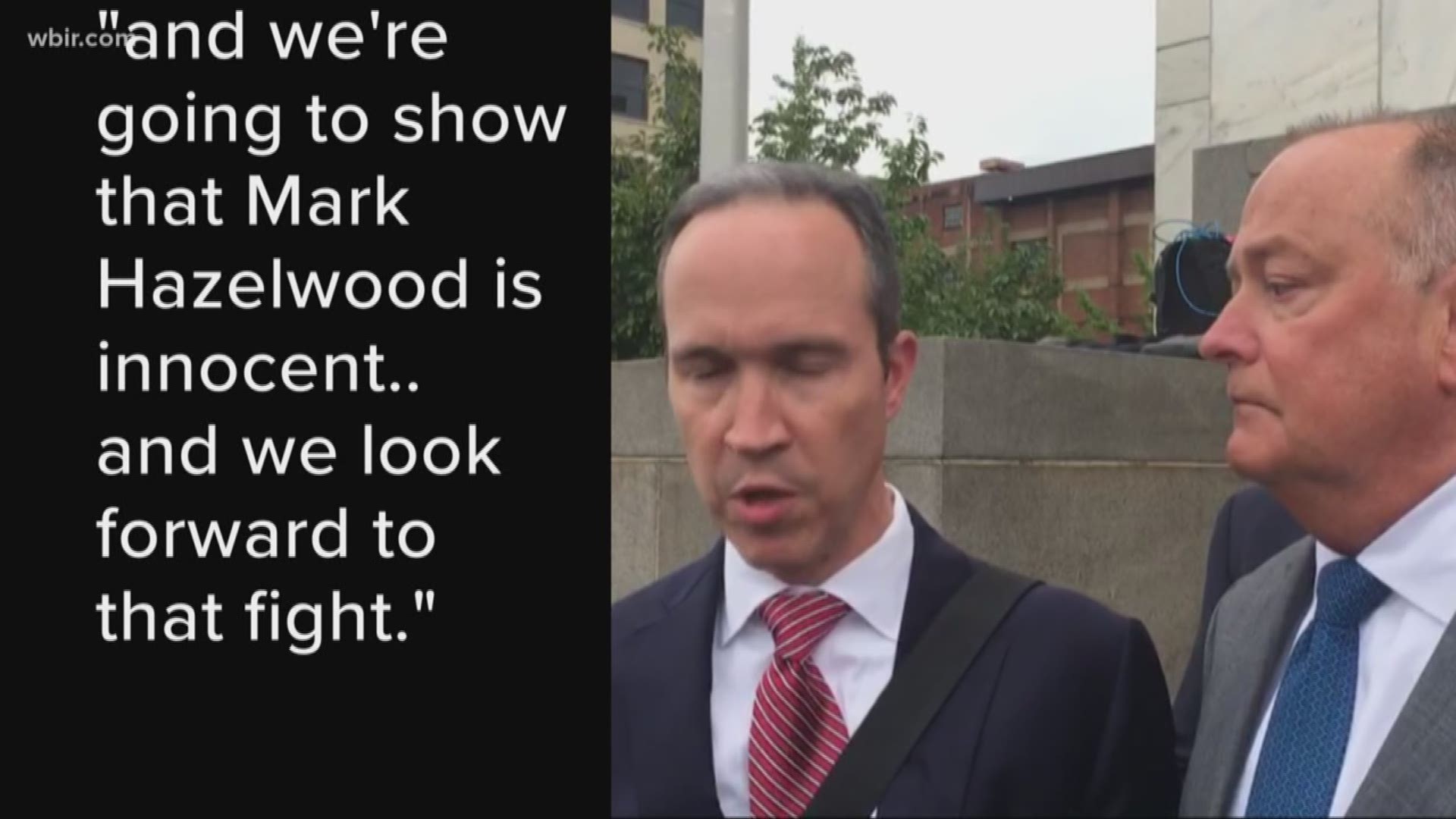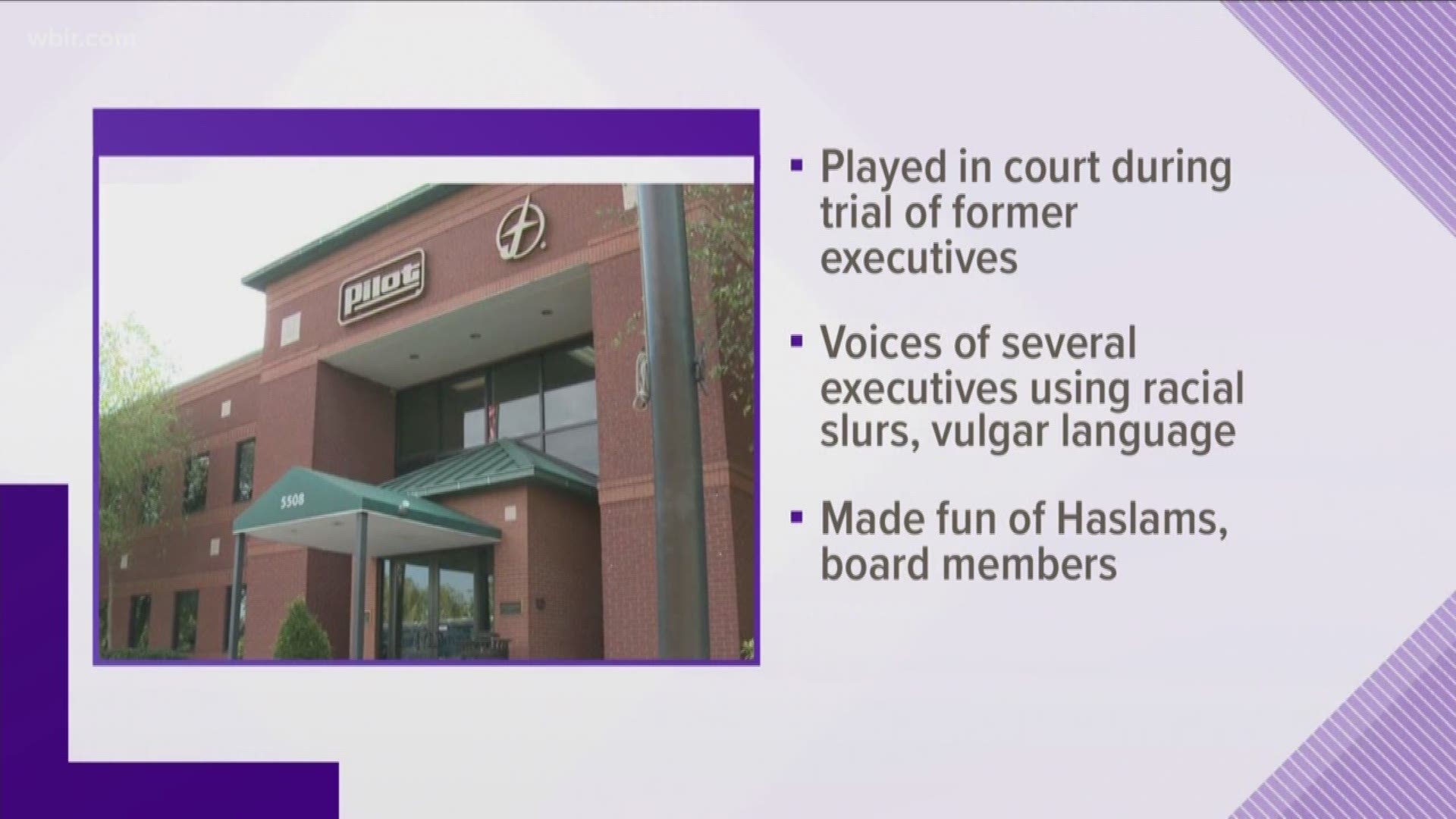With a sharp rebuke to the court, a panel of the 6th Circuit U.S. Court of Appeals on Wednesday tossed the criminal convictions against three former Pilot executives including ex-president Mark Hazelwood.
Judges said Senior Judge Curtis Collier in Chattanooga erred at trial when he allowed jurors to hear secret recordings that showed Hazelwood engaging in racially charged language during a 2012 gathering of Pilot executives.
Hazelwood, Scott Wombold and Heather Jones were accused by the federal government of taking part in a long-running plot to cheat some diesel fuel customers of promised rebates.
Defense attorneys had strongly objected to the introduction of the tapes as prejudicial to all involved. Wednesday's decision was not unexpected.
"The district court admitted the recordings on the theory that if the defendant was reckless enough to use language that could risk public outrage against the company, he was a “bad businessman,” and as a bad businessman, he was also reckless enough to commit fraud," the ruling states.
"This is vintage bad character evidence—and precisely the type of reasoning the Federal Rules of Evidence forbid."
The opinion continues: "The use of the audio recordings in this case jumped the rails of those rules."
John Kelly of Bass, Berry & Sims’ Washington, D.C. office, led Wombold’s trial and appeal teams. He released a statement Thursday.
“We are grateful for the opportunity to represent Mr. Wombold through the long trial in 2018 and in the appeals process. We look forward to the opportunity to represent Mr. Wombold before the District Court to continue asserting his innocence in this matter.”
Highly anticipated decision
The criminal case took months to try, stretching from November 2017 to February 2018. A Chattanooga jury was empaneled because of extensive publicity in the Knoxville area.
It'll likely take many weeks to try again if the government elects to go forward.
Lawyers had been awaiting a decision for months in the convictions of Hazelwood, Jones and Wombold. They argued along with government prosecutors in February in Cincinnati before Judges Richard F. Suhrheinrich, Bernice Donald and Eric Murphy.
Suhrheinrich made it clear from the start of oral arguments that he had doubts about use of the tapes.
The government argued Collier had instructed jurors to only consider the tapes against Hazelwood in the context of his character and skills. Neither Wombold nor Jones are on the tapes
The defense countered that it was basically impossible for anyone to disregard or not hold judgment for the things Hazelwood said, including requesting the playing of an early 1980s racist song written by David Allen Coe that used the N word.
Suhrheinrich and Murphy voted to reverse the trio's convictions. Donald offered a separate dissenting opinion.
"The profoundly racist and sexist content of these recordings is so antithetical to the sensibilities of decent people, that we are “left in grave doubt” that anyone could scrub all traces clean from one’s mind regardless of the quantum of evidence presented," the majority opinion states. "These convictions also cannot stand."
Extensive prosecution
Hazelwood and the other two defendants have been free on bond while awaiting the appeals court decision.
Besides the secret recordings, made by a cooperating witness, the government's evidence included testimony from former Pilot sales staff about how the conspiracy worked. More than 10 former employees also have pleaded guilty.
Hazelwood had worked 30 years at the privately held Pilot, rising through the ranks and making millions and sharing in profits during his career.
Pilot Flying J., now called the Pilot Co., started with one gas station opened by businessman Jim Haslam in the late 1950s. It's now one of the largest privately held firms in America and one of the biggest truck stop operators in the world.
Jurors in February 2018 convicted Hazelwood of conspiracy to commit mail fraud and wire fraud and witness tampering.
Wombold, a former Pilot vice president, was convicted of wire fraud.
Jones, a former customer account representative, was convicted of conspiracy to commit mail fraud and wire fraud.
As a result of the federal investigation Pilot in July 2014 signed off on an agreement stating that some of its sales employees had taken part in the scheme, resulting in a $56 million loss to some customers.
Pilot paid restitution to the customers along with a $92 million fine.
Dissent
Judge Donald wrote that she disagreed with her fellow judges.
In her opinion, Collier didn't abuse his discretion in letting prosecutors present the secret tapes to attack Hazelwood's business acumen and character. The government said the tapes offered evidence of the then-president's poor judgment and leadership.
"An abuse of discretion occurs when we are left with a “definite and firm conviction that the court below committed a clear error of judgment in the conclusion it reached upon a weighing of the relevant factors” or “where (the trial court) improperly applies the law or uses an erroneous legal standard,” she wrote.
"I do not find that the district court abused its discretion in holding that the three recordings are relevant under (federal evidentiary rules)."
To wit, Donald wrote quoting the rules, "Evidence is relevant if: (a) it has any tendency to make a fact more or less probable than it would be without the evidence; and (b) the fact is of consequence in determining the action.”



